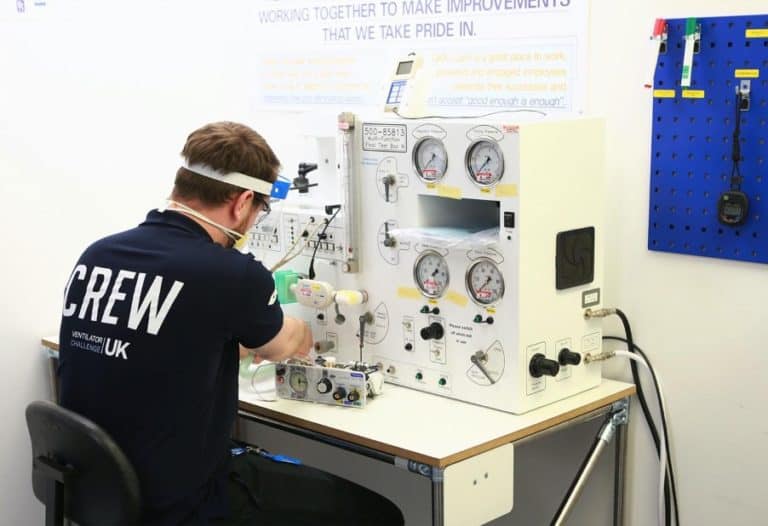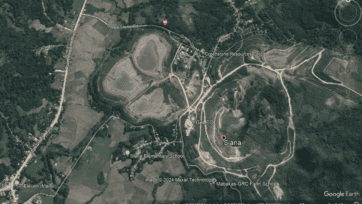When the COVID-19 pandemic spread like wildfire in the UK last year, the nation’s entire medical system came under unimaginable stress. Patients were turned away from hospitals because the National Health Services were short on the much-needed ventilators. Boris Johnson pleaded for help from British industry on a seemingly impossible task: make ventilators and make them fast.
Could this be possible? Dick Elsy, CEO of the UK High Value Manufacturing Catapult, chaired the VentilatorChallengeUK (VCUK) consortium gathering some of the country’s best engineering and manufacturing organisations. The consortium is a collaboration of a range of industries, from medical devices to automotive and aerospace, all with one common goal in mind: to urgently produce ventilators.
Smiths Industries, an established multinational medical devices company, was supported by the consortium to scale up its ventilator production. Innovatively, Penlon, a small UK company which makes anaesthesia equipment, was able to configure some of its designs to come up with a new type of ventilator that met all the requirements. This new creation, now known as Penlon ESO 2, is made up of about 700 parts. The consortium fully backed this effort and Penlon was then faced with the challenge of increasing the production capacity from 2 to 400 a day to meet demand.

Last shipment of ventilators from Penlon. Credits: Microsoft UK
The dilemma was obtaining all the necessary parts for these ventilators when countries were rapidly closing down their borders and access to suppliers was becoming difficult. The consortium set up parallel supply chains and ensured timely delivery to assist Penlon meet the demand. More than 15 million parts were purchased from 88 suppliers worldwide. Five factories were set up in three weeks at Ford, Airbus, McLaren, Penlon and STI. Although unexpected problems surfaced, from time to time nothing got in the way because everyone involved in every organisation was committed to problem resolution. An open data system was set up to ensure that every organisation had access to one version of the truth, fuelling rapid responses to problems in parallel with production.
The results were quite remarkable. A month after the first prototype, regulatory approval was granted to start production. To put this into perspective, under normal circumstances it would take up to 270 days for approvals to be granted by the Medicines and Healthcare Regulatory Agency. Twelve weeks later, the VCUK consortium doubled the number of ventilators available to the NHS, with 11,680 made at a lightning speed of 400 a day.

STI with assembled ventilators. Credits: Microsoft UK

Siemens team at AMRC Broughton. Credits: Siemens
Dick Elsy, spoke about three important learnings which were key to this extraordinary programme.
First is the need for clarity of purpose. The consortium had a clear common goal – save lives! Not all collaborations will have such a compelling goal, but having a common cause, clearly communicated and shared by the entire team, is an essential ingredient for effective collaboration.
Next is to honour real transparency. Having an open data system allowed for rapid problem resolutions across organisations. More importantly, this culture of openness was about speaking up about problems and triumphs alike, allowing the right people to gather quickly and tackle problems. Elsy revealed that the team could be managing around 140 live issues at any one time, but all would be resolved promptly, with faster responses to critical issues.
Thirdly, with fit-for-purpose structures, the consortium’s approach was to draw in the right expertise, regardless of rank, with engineers equally working side by side with their CEOs. Also, rather than use the bureaucratic tiered management, they self-organised around key parcels of work with a flat structure and meritocratic way of working, with daily meetings and supported openness. The sense of cohesion was huge because of the culture of openness and trust that was created.
VCUK’s success is remarkable, but Dick Elsy believes that there is very little stopping us from working like this all the time. One wise comment from him is that giving the right people the opportunity to do the right things can help us unleash the great potential in our own organisations too.
References
Elsy, D 2021, Ventilator teamwork shows what’s possible with innovative thinking, Engineering and Technology, viewed 24 May 2021, https://eandt.theiet.org/content/articles/2021/03/ventilator-teamwork-shows-what-s-possible-with-innovative-thinking/
2020, British manufacturers unite to build ventilators for the NHS, Microsoft UK, viewed 24 March 2021, https://www.microsoft.com/en-gb/about/ventilator-challenge/
2020, VentilatorChallengeUK delivers over 13,000 ventilators to the NHS, Renishaw, viewed 24 March 2021, https://www.renishaw.com/en/ventilatorchallengeuk-delivers-over-13000-ventilators-to-the-nhs–45519
2020, Ventilator challenge: Siemens’ young engineers make history, Production Engineering Solution, viewed 24 March 2021, https://www.pesmedia.com/ventilator-challenge-uk-siemens-22072020/




















